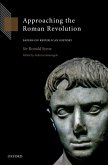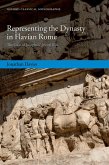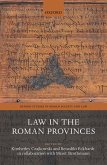No public action of the Roman state, the populus Romanus, at home or at war, was to be carried out without prior permission from Iuppiter Optimus Maximus. Permission was obtained, in a procedure known as auspices, by the magistrate in charge of the intended action-usually a Consul, Praetor, or Dictator. Auspices thus occupy a fundamental place in the-unwritten-constitution of the Roman State. Yet especially in the 3rd century BCE, acceptance of the principle was not always universal. The Challenge to the Auspices presents an investigation into the interaction of Roman magistrates during the Middle Republic with the practice of auspices, with a focus on attempts to avoid, ignore, or resist this requirement. Proceeding from an examination of the Roman concepts of imperium and auspices (auspicia), especially as they relate to the realm of war, and of the constitutional position and powers of the Dictator and the Master-of-Horse (magister equitum) relative to each other and to the Consuls and lower magistrates, the work offers six case studies in which Roman commanders questioned, violated, or openly rejected the need for auspices. It is argued that these instances reflect a not insignificant minority view within the Roman ruling class regarding the efficacy of auspices and the necessity of observing them. The catastrophic outcome in several of these events, particularly during the early years of the Second Punic War, rendered further resistance to the practice politically unsustainable, and by the second century resulted in its universal acceptance, regardless of personal belief.
Dieser Download kann aus rechtlichen Gründen nur mit Rechnungsadresse in A, B, BG, CY, CZ, D, DK, EW, E, FIN, F, GR, HR, H, IRL, I, LT, L, LR, M, NL, PL, P, R, S, SLO, SK ausgeliefert werden.









